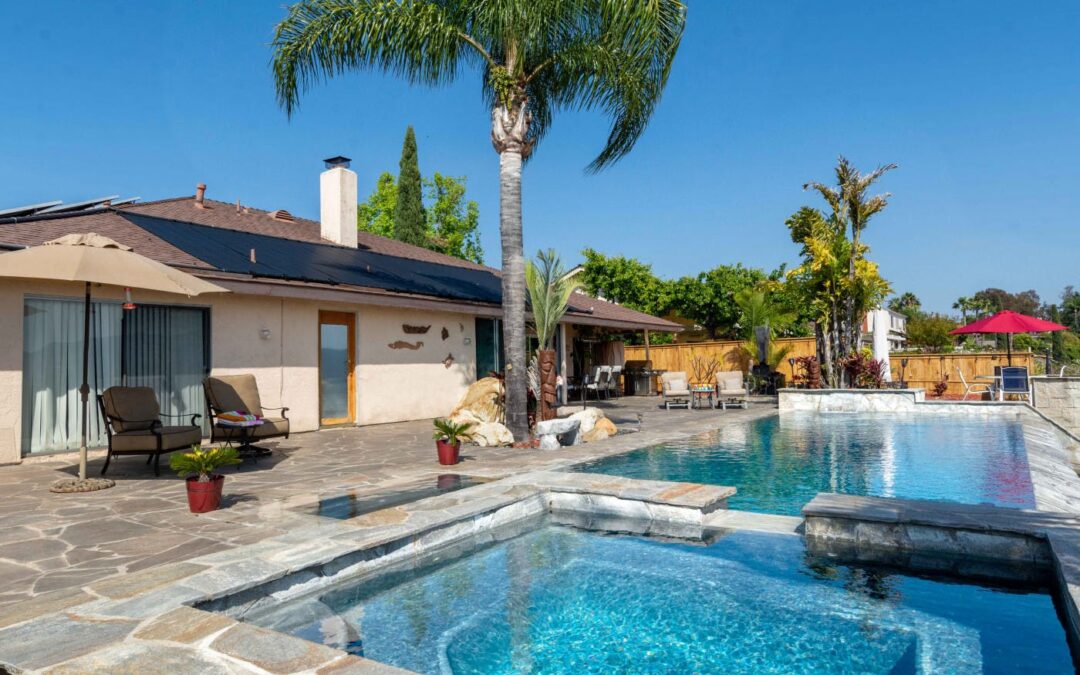Summer is the perfect season for unwinding by the pool. However, nothing can ruin a tranquil pool day quicker than the unwelcome presence of wasps. Understanding how to keep wasps away from pool not only ensures a more enjoyable swimming experience but also enhances the safety and comfort for you and your guests. Wasps can be aggressive by nature, and having knowledge on how to prevent their intrusions becomes crucial.
Learning how to keep wasps away from pool involves a combination of preventive measures and practical solutions. From understanding the habits of wasps to utilizing natural deterrents, there are several effective methods available to reduce their presence and maintain your pool area as a wasp-free zone.

Understanding Wasps and Their Behavior
Why Wasps are Attracted to Water
Wasps are attracted to water sources, including pools, during hot weather because they need water to cool themselves and to build their nests. The pool’s water surface provides a convenient resting place for them. Understanding wasp behavior can allow you to implement strategies that make your pool less appealing to these insects.
Moreover, wasps are drawn to sweet scents and food residues, which can often be found around pool decks. Limiting these attractions is the first step in managing wasp presence effectively.
Identifying Potential Nesting Sites
Common Nesting Areas Around Pools
In the quest for keeping wasps away from pool, identifying potential nesting sites is essential. Wasps typically build nests under eaves, in bushes, near trash cans, or in any sheltered location near a water source. Regular inspection of these areas can help prevent wasps from establishing new colonies.
Signs of an Active Wasp Nest
Typical signs include increased wasp activity, visible nests hanging from surfaces, and a buzzing sound emanating from potential nesting locations. Spotting these early on can prompt timely action to remove the nests safely.
Natural Deterrents for Wasps
Using Essential Oils
Essential oils such as peppermint, clove, and lemon grass are known for their ability to repel wasps. Mixing a few drops with water in a spray bottle creates a natural deterrent. Regularly spraying this solution around the pool area helps in keeping wasps at bay. A natural wasp repellent not only prevents wasps but is also safe for humans and pets.
Planting Wasp-Repellent Plants
Certain plants act as wasp deterrents. Marigolds, mint, and eucalyptus are examples. These plants emit scents that wasps find unpleasant. Landscaping with such plants around the pool area can naturally reduce wasp infestation.
Commercial Solutions and Their Effectiveness
Using Wasps Traps
Several commercial wasp traps are available in the market. These traps attract wasps with bait and prevent them from escaping. Placing these traps strategically around the pool perimeter can significantly reduce wasp numbers.
Repellent Sprays and Their Usage
Various chemical repellent sprays are effective against wasps. Applying these around doors, windows, and the pool area provides a protective barrier. However, ensure to follow the manufacturer’s instructions closely to avoid harm to pets or non-target insects.
Maintaining a Clean Pool Area
Regular Cleaning Habits
Maintaining cleanliness around the pool is a fundamental step in learning how to keep wasps away from pool. Clearing away food debris, ensuring trash cans are sealed, and avoiding sweet and fragranced lotions near the water will reduce attractions.
Why Pool Safety and Wasp Prevention Go Hand in Hand
Ensuring a Safe Environment
Combining wasp prevention with safety measures ensures a secure environment for pool users. Educating family and guests about the importance of wasp safety aligns with effective prevention strategies. Inviting guests might not know the nuances of handling wasp encounters. Educating them is a key step in maintaining safety.
FAQs About Keeping Wasps Away From Pools
What home remedies can deter wasps from pool areas?
Home remedies such as homemade sprays using essential oils and growing repellent plants can deter wasps. Regularly applying these methods as part of maintenance are economical solutions. For more, learn about pool care.
How often should I check for wasp nests around my pool?
It’s important to inspect your pool area weekly during the warm months to spot early signs of nesting, thus reducing the risk of a large-scale infestation. Real estate tips emphasize maintaining a pest-free home space.
Are commercial wasp repellents safe for children and pets?
Ensure to use commercial wasp repellents that are labeled safe for children and animals. Reading the instructions and warnings will guide appropriate usage. Alternatively, consider investing in safe deterrents.

Conclusion
By understanding how to keep wasps away from pool, you can cultivate a relaxing and secure environment for everyone to enjoy. Implementing measures such as identifying nesting spots, using natural deterrents, and maintaining good hygiene ensures a pleasant pool experience. Proactive management and informed strategies are key to keeping these unwelcome visitors at bay, allowing you to focus on relaxation and fun.
This article contains affiliate links. We may earn a commission at no extra cost to you.

